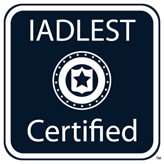Contact Us
To provide feedback on the Community Policing Dispatch, e-mail the editorial board at CPDispatch@usdoj.gov.
To obtain details on COPS Office programs, publications, and resources, contact the COPS Office Response Center at 800-421-6770 or AskCopsRC@usdoj.gov

U.S. Department of Justice
Office of Community Oriented Policing Services
Washington, DC 20530

Managing Bias Course Objectives
- Explain key concepts such as identity, culture, stereotyping, bias, and prejudice and their relevance to law enforcement practices.
- Understand how psychological and physiological processes can affect biases in thought and action and how to minimize the negative effect of cognitive processes.
- Discuss how individual and collective identity impacts law enforcement culture and community perceptions of law enforcement.
- Develop skills to mitigate biases and to minimize harm and promote fairness, equity, and respect.
Recently, communities and government officials have called upon law enforcement agencies to participate in bias training in reaction to high-profile incidents and disparities in how communities are being policed.
 Over the last year, CNA has worked with a number of law enforcement agencies to implement Managing Bias Strategies for Law Enforcement Training (MB) on a pilot basis. The pilot was intended to elicit feedback from the end users of the training to create a final product that is useful and applicable to agencies nationwide.
Over the last year, CNA has worked with a number of law enforcement agencies to implement Managing Bias Strategies for Law Enforcement Training (MB) on a pilot basis. The pilot was intended to elicit feedback from the end users of the training to create a final product that is useful and applicable to agencies nationwide.
The MB training course covers the foundations of bias, the psychology of bias, organizational culture and biases, and community engagement and biases. Participants deepen their understanding of relevant key terms and concepts; identify assumptions, perceptions, and perspectives related to identity, culture, stereotyping, and discrimination; and discuss how these concepts intersect with their policing practices. The training provides a conceptual framework and equips participants with practical tools to enhance interpersonal and community relationships.
CNA strives to deliver high-quality training sessions to the field and deploys expert facilitators with law enforcement and community experience. When asked about the MB training in particular, a Director of Public Safety shared how helpful the training was in meeting the needs of his department:
“One of the best parts of this program is how it directly speaks to Law Enforcement professionals meeting them where they are. Generic programs do not reach our unique audiences well because of the complexity of the work they do; however, this program provides and delivers the core critical information in a vernacular our professionals understand, delivered by professionals who are working or worked directly in the field. Having instructors who come from or serve in the same capacity and background builds a connection with the audience and allows for an open, comfortable, and safe space for the critical dialog to take place.”
 Fostering a safe environment to meaningfully discuss assumptions, perceptions, and perspectives related to identity, culture, stereotyping, and discrimination is paramount to CNA and the MB facilitators who deliver the training. These facilitators are carefully selected based on their own experience and skills. CNA provides at least one facilitator with sworn law enforcement experience and one facilitator from the community. One law enforcement facilitator emphasized the neutrality of the training and its nonconfrontational approach:
Fostering a safe environment to meaningfully discuss assumptions, perceptions, and perspectives related to identity, culture, stereotyping, and discrimination is paramount to CNA and the MB facilitators who deliver the training. These facilitators are carefully selected based on their own experience and skills. CNA provides at least one facilitator with sworn law enforcement experience and one facilitator from the community. One law enforcement facilitator emphasized the neutrality of the training and its nonconfrontational approach:
“[Managing Bias] creates a safe space for open, honest dialogue, enabling participants to challenge their preconceived notions and learn from one another. Rather than aiming to shame or stigmatize, this training empowers individuals to confront their biases and foster a more inclusive and equitable environment.”
Participants have consistently shared their appreciation for the interactive nature of the training, as well as how realistic and personable it is.
“[Managing Bias helped with] understanding how the different perspectives and experiences a person may have may influence their behavior in the moment, or cognitive biases I may have, can help identify different details that may have been otherwise missed during investigations.”
“The energy and passion the instructors brought was refreshing and helped make an eight-hour session very engaging. The instructors were very good at reacting and responding appropriately to the dynamic questions and comments some of us brought up.”
“The non-judgmental open dialogue created fostered a positive forum for participants to speak openly and freely. When you are able to create such an environment speaking about topics that carry a high degree of emotion, everyone gets better.”
In partnership with support from the COPS Office, CNA is currently booking trainings through the end of 2024. To learn more about our training, please visit the Managing Bias training website.
CNA’s Center for Justice Research and Innovation applies research, analysis, and technical assistance to solve complex problems in the public and government sectors. Through methodologically-sound scientific research grounded in field operations analysis and assistance—and through close connections with justice agency management and operations—CNA helps local, state, and federal organizations achieve practical results that save lives, promote justice, and improve trust and accountability in justice system operations. Learn more about the Center for Justice Research and Innovation.
Subscribe to Email Updates
To sign up for monthly updates or to access your subscriber preferences, please enter your email address in the Subscribe box.






